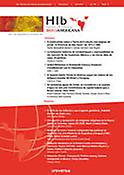Veiled Whiteness in Nineteenth-Century Honduran Constitutional Law & Citizenship
DOI:
https://doi.org/10.3232/RHI.2017.V10.N2.03Keywords:
Citizenship, Constitutional Law, Honduras, Racialized Differentiation, WhitenessAbstract
Race has always been central to the regulation of political membership and constitutional rights in Honduras. This study demonstrates how and why citizenship in Honduras was both restrictive in nature and based on racialized criteria. A nuanced analysis of nineteenth-century constitutions reveals that while governmental leaders did not refer to any racial groups in these legislative documents, they did describe the ideal citizen in implicitly racial terms. The provisos required for the status of citizen, including property ownership, morality and literacy, were built on concepts that have historically been racialized; notions associated with racial difference, Western values and accumulated privileges of systemic white supremacy. By delimiting citizenship in such terms, Honduran leaders characterized it as “white” and used the highest law of the State to exclude most non-European peoples from membership in the polity.
Downloads
Published
Versions
- 2017-12-31 (2)
- 2017-12-31 (1)
How to Cite
Issue
Section
License

This work is licensed under a Creative Commons Attribution-NonCommercial-NoDerivatives 4.0 International License.


